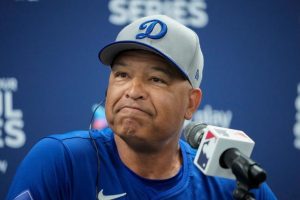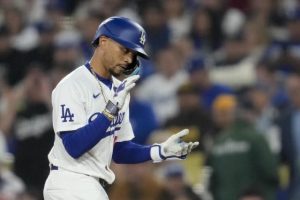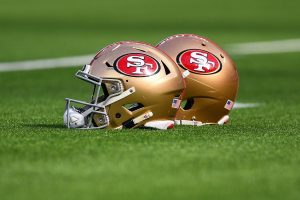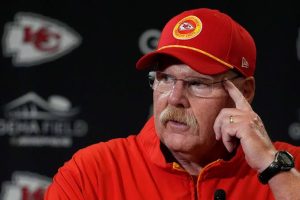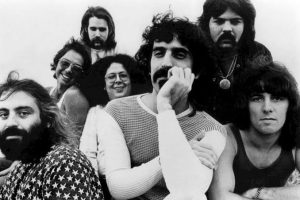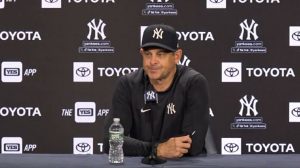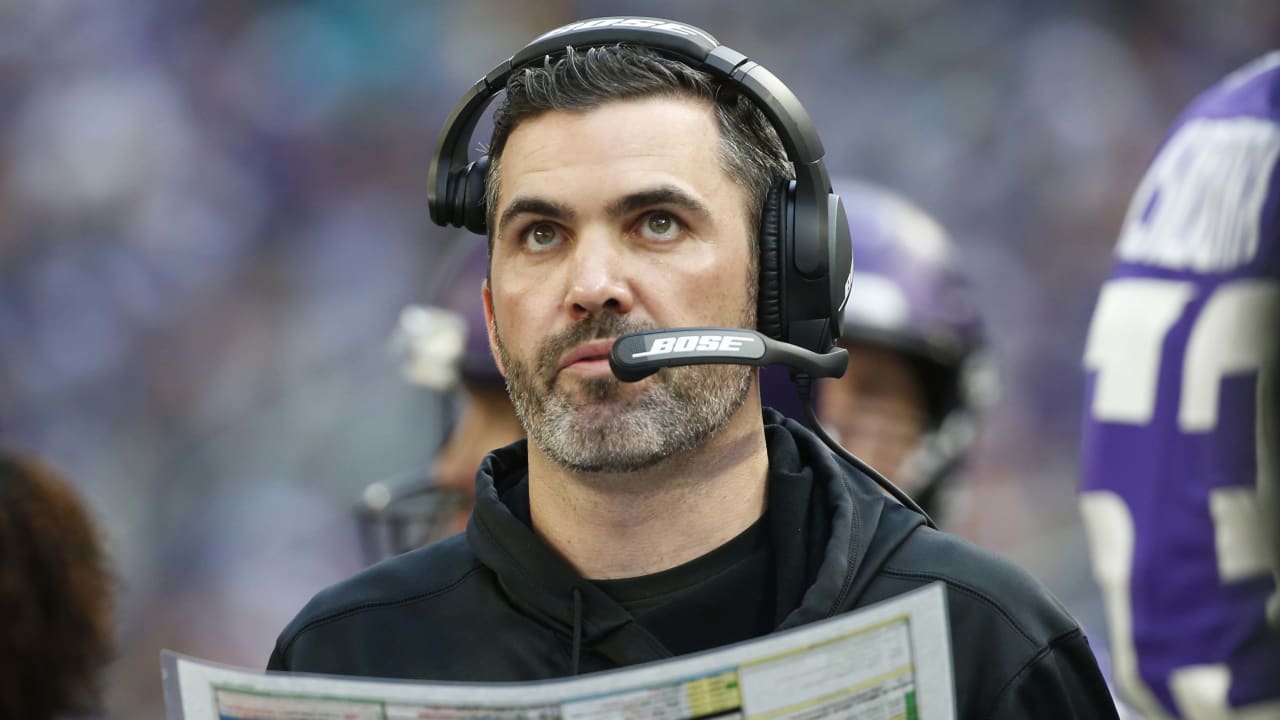
Terrible News: Cleveland Brown Lose A Player From Medical….
If you had to choose the best-dressed player in the NFL, you would have many options.
Philadelphia Eagles quarterback Jalen Hurts: He be having that on.
New York Giants quarterback Tyrod Taylor: Never misses.
Baltimore Ravens receiver Odell Beckham Jr.: Very little competition.
But for those who spend some time on Instagram, there’s an X factor who may not be as well known as the names listed above, but regardless might be the best dresser of them all.
His name is Jeremiah Owusu-Koramoah, and he is a linebacker for the Cleveland Browns. His use of Ghanaian and other African cultures in his pregame wardrobe not only makes his fashion sense stand out, but also takes us all on a journey through the continent rarely seen before in American pro sports.
Owusu-Koramoah grew up in a very spiritual and disciplined household. His father, who was born in Ghana, and mother met in England before moving to Hampton, Virginia, in 1998, one year before Owusu-Koramoah was born.
While he had relatives who were Muslim or followed other religions, Owusu-Koramoah was raised Christian by his parents, which meant waking early every morning to pray along with avoiding certain vices: no cursing, no drinking, no smoking, no going out. Their parenting style took after scripture; Proverbs 22:6: Train up a child in the way he should go; even when he is old he will not depart from it.
“My base foundation first started within the spiritual sector,” Owusu-Koramoah told Andscape.
While Owusu-Koramoah would eventually become an All-State linebacker in high school and an All-American and Butkus Award winner, given to the nation’s top linebacker, at Notre Dame, his first passion was basketball. He was good enough to receive scholarship offers from Virginia Military Institute and historically Black University of Maryland Eastern Shore in hoops, but football was his destiny from the first moment a coach discovered him as a youth.
“I had a coach come up to me while I was playing basketball, and he was like, ‘Look man, you need to get on the football field,’ ” Owusu-Koramoah remembers being told. “ ‘You a little too aggressive about it.’ ”
Despite his fondness for showing off his Ghanaian culture, Owusu-Koramoah wasn’t particularly raised in a Ghanaian household. His father did not live in the home Owusu-Koramoah shared with his mother and siblings. Even still, his father didn’t teach him about their family heritage, preferring to focus on the opportunities that a life in America presented to his children.
“He was more so focused on the present versus maybe trying to take us back a bit,” Owusu-Koramoah said of his father. “And whether that was the right decision or not, we eventually found our way.”
Owusu-Koramoah doesn’t believe that his father necessarily needed to teach him anything, as the gift of his Ghanaian identity was sufficient enough. Regardless, he eventually fellowshipped with Ghanaian teachers, and his father, who educated him on the nation’s spirituality, ideology, fundamentals, and fashion.
“I made that decision to go back and to seek more,” he said.
With all Owusu-Koramoah learned about his culture and himself over the years — his identity — he decided to use his job as a pro football player and the eyeballs that profession attracts to spread the message of what makes him unique.
During his rookie season in 2021, Owusu-Koramoah mostly wore standard American fashion for his pregame outfits: fur-lined coats, all-black ensembles, sweatsuits, sneakers. Not exactly cutting-edge, but he pulled it off.
The following season, you begin to see the ancestry shine through: Sankofa neckwear, Ghanaian-influenced Nike Air Force 1s, a Kaftan, a kufi, and kente cloth (“When you wear Kente, you win!” one caption read).
But for the 2023 season, Owusu-Koramoah wanted to be more deliberate and really emphasize his heritage to his Instagram audience. He’s had a new Africa-inspired outfit for each game of the season, of which he styles and curates all himself, save for a few collaborations, including with a Beninese stylist who has supplied him with a crown and jewelry. Owusu-Koramoah can’t recall how much each outfit costs, but one of his most recent looks from the Nov. 29 game against the Denver Broncos cost $2,500.
Owusu-Koramoah took Andscape through a few of his outfits from this season
“Well, first and foremost, the symbol is very important. The symbol is Gye Nyame, and it means ‘accept God.’ … The red is intense emotion, and something that’s very important to the Ghanaian people. Not only that, but the head wrap is something that … all African cultures have a piece of it. … The concept with the white underneath, that’s Mauritania.”
“The Tuareg people, they’re very, in a sense, warlike, but that specific garment is for those who have high status. So you’ll see the veil, you’ll see the gown, and it’s that gleaming kind of texture. The fabric is sewn together from dozens and dozens of these half-inch wire strips of this handwoven cotton. … They’re known as these blue men of the desert. It’s very unique, but the veil is a very important part of it.”
“That’s the kente. Royalty is very huge. The crown was the most important part on this one, because people think of Africa as just secluded to the area with the horn, and then you have Egypt. But then Africa, in the sense in the ancient lands, were known for even the expanse where you have a bit of the Middle East or what they would call the ancient Near East. … that was a part of my Abravo series, which is a clothing line that I’m planning to make once I find my mass producers.”
“That one was fire. I wanted to do a ‘Death to Rebirth’ series, and that really speaks high because that black is what they wear to funerals. And for the funerals, you don’t really see a lot of people wearing a superamount of jewelry and stuff. But I did want to because I wanted to make it almost like a rebirth. … In the caption I said, ‘With Every Death, There’s Rebirth; With Every Loss, There’s the Spirit’s Call to Transformation.’ I thought that was useful too because we just lost [to the Denver Broncos]. But I thought it was useful because when you receive a loss and when you receive death, it’s almost like an opportunity. If you don’t die, then you don’t have the opportunity for rebirth. If you don’t lose, then you don’t have an opportunity really for transformation, in a sense.”
“So the white is also a part of the brand, Abravo, but I wanted to add a piece of Mali to it. As you can see the caption there, Bògòlanfini, they are from Mali, and they are known for the mud cloth, and they have a long process of making it. But I just wanted to kind of go on a West Africa tour — has some Mauritania in some of the outfits, has some Niger, I had some Senegalese in there. I had some Nigerian. I am trying to just really salute to them, to West Africa.”
“That’s the kente, that’s the OG, triple OG. The base of the kente, all of the colors have a meaning. A lot of the time purple is royalty in different places, but with the kente, the gold is the royalty. Of course, the purple is too, but the purple often comes across as earth and healing, femininity. The maroon is the healing. And then the red got some strong spiritual feelings, and the blue is peace and harmony. … It has a lot of history within the Ghanaian people. It’s worn by kings, worn by queens, important figures of the state.”
Owusu-Koramoah said the clothes make him feel at home. Identity — who you are, where you’re from, what you represent — is one of his core beliefs, what he believes makes the world unique. We as a people don’t embrace ourselves enough, which benefits no one, he said.
“When we put everybody’s culture invisible, when you put everybody’s culture in the melting pot and you say there is no culture, there’s no people that’s different, we’re all the same, then that’s when we kind of come across [a] bit of problems,” Owusu-Koramoah said.
Jacqueline-Bethel Mougoué, an associate professor of African cultural studies at the University of Wisconsin-Madison, said that fashion is an important part of African culture, as it can symbolize one’s family background, social status, ethnic background, spirituality, political power, or even marital status.
When Mougoué, who teaches a course on the politics of African fashion, sees Owusu-Koramoah, she sees someone who exhibits the visual prominence of a traditionally powerful African man.
“He’s choosing outfits from Ghana and other West African countries that for men exude power,” she said. “That take up space, that are loud, that are saying, ‘I am here. I’m here to stay. I’m proud of my background, but I also have power.’ ”
Owusu-Koramoah subscribes to the Ghanaian saying nkrabea, which is defined as one’s mission or destiny. In this case, Owusu-Koramoah uses fashion to inspire others to find their nkrabea.
“At the end of the day, people do love stories. They love people that embrace self. And I think that, for instance, is one of my missions: To just teach self, teach knowledge of self,” he said. “And I think that’s the most important part of a being, is if you know knowledge of self, then you know where you’re going in life and you know who you are, how to act, you know how to present yourself, how to speak to people, how to act.”
